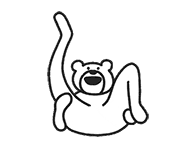|
If you've read the book we can talk about it
|
|
|
|

|
| # ? May 26, 2024 19:02 |
|
I’ve read the book twice but something tells me you’re set to “hostile” right now so i’m just gonna dip. have a nice day.
|
|
|
|
I've read the book, now do you have something interesting to say about it?
cda fucked around with this message at 05:20 on Jun 10, 2020 |
|
|
|
I've read a book. AMA.
|
|
|
|
cda posted:I've read the book, now do you have something interesting to say about it? WatermelonGun posted:I’ve read the book twice but something tells me you’re set to “hostile” right now so i’m just gonna dip. have a nice day. Well Melon after reading this I hope you are somewhat convinced that I am willing to engage with this in good faith. (TBF I am always set to hostile though). Anyways, https://tinyurl.com/yao45eof , was for me, an very interesting read because of my subject positioning. I frequently read books and authors by people outside of my immediate experience, but https://tinyurl.com/yao45eof is one of the few books that feels explicitly not for me. The novel, in many ways, is very much a polemic to a community from a person inside of that community. There are similar books which similarly are a person in a community speaking to their community (The Fire Next Time comes to mind) but even in that genre there is usually an element that gives an outside reader a sense that there is meant to be understanding in their reading. https://tinyurl.com/yao45eof instead, seems entirely unconcerned with whether or not the novel is read by or gives understanding to an outside reader. The book is about a gay man and his anger at gay men. In many ways, it made me extremely uncomfortable to read because of how casually the author interacts with ideas and portrayals of gay men that are seen as ugly stereotypes. But, that is part of the point. He is engaging with the stereotypes of gay men as vain, feckless, and unfaithful in a way that only a person inside of a group can. If a straight man went on the sort of rant that Fred does at the climax of the book, or cynically portrayed a Fire Island party as the sort of hedonistic sodom in the same way the author does, it would rightly be called out as homophobic and stereotypical. And that's the point. Its about a man in the gay community venting his anger in a way only a person intimate within the community has even the right to. Its not about giving anyone a view into gay life, its about a person within a community speaking to the community. That sort of indifference to being an outreach to those outside of the community is also part of why I feel like "dulling" the title by refusing to use it does a disservice to the reading of the book. If I had to pick a well-known cultural moment to directly compare the book to, I would use https://www.youtube.com/watch?v=f3PJF0YE-x4. It very much has the same spirit imho. Which again, is why acknowledging and confronting the title feels essential to a reading of the book. In the same way that the humor, frustration, insight, and exhaustion of Chris Rock's routine is lost if we neuter the language, the same thing happens with the text. It feels to me, and I could be and probably am wrong about it, that the discomfort with using or saying the title is a direct disservice to the text because it neuters the text in order to make it palatable for the outside audience. Those within the community the text was written for would have no problem using the term. The term only becomes problematic because of non-gay men not wanting to "use a slur." But, if we refuse to use the slur because it makes us uncomfortable as outsiders to the conversation, we are essentially changing the conversation into something that becomes more personally comfortable for us. The title is a gay man using a provocative term because he has the authority to use it, and he is making a conscious decision to do so, well aware of the weight it carries. When we refuse to engage on the text on those terms, we are appropriating only the elements of the text that we feel comfortable with, which feels unfair. I am reminding of this moment https://www.youtube.com/watch?v=j3b2dH6n3Qg&t=837s (13:57 if the timestamp doesn't work) when thinking of the controversy over the word. Ultimately, the reluctance to use the title of the work to refer to the work is not a sign of respect to a community but instead a reflection of our own discomfort at saying "the bad word." The author used the title deliberately, and part of that deliberate intent was the deliberate discomfort it would create in all readers. By neutering it, we are not showing respect to the writer or the community, but we are instead denying the unique authority Kramer had as a member of his community to directly challenge us with language.
|
|
|
|
3D Megadoodoo posted:I've read a book. AMA. I watched The Name of the Rose in a bar last night. The sound wasn't on, but I got the gist of it.
|
|
|
|
Teriyaki Hairpiece posted:I watched The Name of the Rose in a bar last night. The sound wasn't on, but I got the gist of it. Well yeah but it's got subtitles as it's a foreign movie.
|
|
|
|
is Blacklist a book cuz man watching them try to push james spader as an action man in a silent restaurant bar naw man go spank secretaries and crash gently caress or something
|
|
|
|
The reason you need to use the title of the book is so that people know what book you're referring to. It has nothing whatsoever to do with the title's function in the book unless you happen to want to talk about the purpose of that particular word, because Larry Kramer using the word in his text is not the same as you using the word in your commentary. Here, let me help you:Mel Mudkiper posted:Anyways, Larry Kramer's novel Faggots, was for me, an very interesting read because of my subject positioning. I frequently read books and authors by people outside of my immediate experience, but this is one of the few books that feels explicitly not for me. The novel, in many ways, is very much a polemic to a community from a person inside of that community. There are similar books which similarly are a person in a community speaking to their community (The Fire Next Time comes to mind) but even in that genre there is usually an element that gives an outside reader a sense that there is meant to be understanding in their reading. Kramer's book, instead, seems entirely unconcerned with whether or not the novel is read by or gives understanding to an outside reader. Now, I happen to think your understanding of the title is fairly shallow, along the lines of "Herman Melville called it Moby Dick because the whale's name is Moby Dick." I'd like to push you to consider the way that the discomfort you feel is the result of Kramer's ambivalent use of the word. For example, how he opens the novel with various statistical claims such as: quote:There are now more faggots in the New York City area than Jews. There are now more faggots in the entire United States than all the yids and kikes put together. (This subsidiary data, not overtly relevant, but ipso facto nevertheless). These three sentences are doing a lot of work. Consider the deliberate slide from the neutral "Jews" to pejorative terms from the first to the second sentence. Consider the disavowal contained in the third, the deflection that lets us know, in fact, how relevant the connection between Jews and gay men is (and of course, both Kramer and his protagonist are both). Kramer is setting up a relation between these terms which is at once deeply connected and different. The Jew and the gay man both are and are not the same. Coming at a similar point from a different angle, Kramer tells us that Fred quote:soaped his tarnished, yellowed, peed-upon body in the showers. Ah, did he not hate that word "gay"? He thought it a strange categorizer of a life style with many elements far from zippy. No, he would de-kike the word "human being," which had punch, bite, a no-nonsense, chin-out assertiveness, and which, at present, was no more self-deprecatory than, say, "American." So what does it mean to "de-kike" a word? I think what we have to notice here is that the reclamation of one pejorative is defined in relation to an apparently still self-deprecatory other. The active definition of one offensive term is predicated on the maintenance of the boundary of oppression in both language and geography. Here’s Laverne, the schoolteacher, musing on that boundary: quote:Yes, we’re all out of the closet but we’re still in the ghetto and all I see is guys hurting each other and themselves. But how to get out! And yes, the world is giving us a bad name and we’re giving us a bad name and one of us has got to stop and it’s not going to be the world. But even knowing all of this…where am I[/i] Again we can see Kramer positioning gayness and Jewishness as elements of a dual subjectivity expressed in both word and place – out of the closet, but still in the ghetto. What does it mean to give yourself a bad name? The disavowals of shame and self-deprecation which characterize the thoughts of the main characters are thus undermined, making the word not a designation of pride or defiance but a space of both possibility, difficulty and danger to be traversed. That it is also the story of a man’s midlife crisis gives the traversal a specific emotional focal point. It is germane to this discussion to use offensive language, not because doing so respects the text (who gives a gently caress, I’ll do whatever I want with the text), and not because my job as a reader is to somehow justify or accomplish Kramer’s “intent,” but because the discussion we’re having is about that word. There’s lots of other stuff to discuss about this book, and simply saying the word is meaningless. If all you’re doing is pointing people to the words a book uses, then they could just read the book themselves.
|
|
|
|
I'm interested in this from the perspective of Mel's view of being in the "outside community." Whether a novel can bring you to "inside" the community. It's ridiculous to think a novel can encompass an entire life that's brought someone to one point, even to think a novel can capture the entirety of someone's perspective in a moment—mediated experience/thought that a novel necessarily is—but can a novel "teach" or "embed" someone in an experience well enough, through what's gone before in the story/writing, to have them near-enough to what the protagonist/narrator/author is going through. Is it possible to prime—temporarily, through reading the novel—someone in a way that they adopt the necessary mind-space to appreciate, even become, the view that's put across in a story. Tangential to this is the paratext of novels, the back matter, title, maybe an introduction, etc. that establish how the reader should experience something.
|
|
|
|
I mean, that's the premise of The Pleasure of the Text and I would argue it is the very highest virtue of great literature. Also not ignoring you cda I need some time to give it a meaningful response
|
|
|
|
Very fittingly for what is going on in the world today, I just read a novella about how the French existentialist army was trying to attack and dethrone God (Kuolleet puutarhat i.e. "Dead Gardens" by Petri laine, I highly doubt it'll ever get translated into any other language) on the bog. Plot twist: God was tired of their poo poo and was already leaving to other worlds, taking all the souls with him. Are sci-fi "zines" still a thing around the world?
|
|
|
|
3D Megadoodoo posted:Very fittingly for what is going on in the world today, I just read a novella about how the French existentialist army was trying to attack and dethrone God (Kuolleet puutarhat i.e. "Dead Gardens" by Petri laine, I highly doubt it'll ever get translated into any other language) on the bog. Plot twist: God was tired of their poo poo and was already leaving to other worlds, taking all the souls with him. Literature zines seem to have been replaced by kickstarted short story anthologies
|
|
|
|
Hedrigall posted:Literature zines seem to have been replaced by kickstarted short story anthologies loving millennials! I just checked and while Spin (the local sci-fi association's mag) and Tähtivaeltaja (same for Helsinki) are still apparently in publication, the one where most of Laine's novels first came out, Usva, which was a PDF publication is now defunct. I used to subscribe to Tähtivaeltaja as a kid for a while, but mostly for the articles and comics. e: Oh apparently Usva put out three "international" issues, i.e. in English: http://usvazine.net/arkistousvaint06.htm 3D Megadoodoo fucked around with this message at 11:23 on Jun 11, 2020 |
|
|
|
cda posted:These three sentences are doing a lot of work. Consider the deliberate slide from the neutral "Jews" to pejorative terms from the first to the second sentence. Consider the disavowal contained in the third, the deflection that lets us know, in fact, how relevant the connection between Jews and gay men is (and of course, both Kramer and his protagonist are both). Kramer is setting up a relation between these terms which is at once deeply connected and different. The Jew and the gay man both are and are not the same. Coming at a similar point from a different angle, Kramer tells us that Fred So, with all due respect, I think the biggest issue that I have with this interpretation of the text as a way to refute my point is that you are using elements of the text that are far too early in the development of the story and of the character to act as a meaningful signal of the nature of the book and its conclusions. You seem to be positing that the ideas the author toys with in these early pages are consistent with the tone and message that will be carried throughout the entire text, which is inaccurate. In fact, you are essentially highlighting the very mentality that the book goes on to critique and appear to be positing it as the authentic conclusion of the viewpoint. Every reference here is from the first fifty pages of the text, and it seems problematic to base your conclusions on these early segments. It would be like trying to assert the meaning of Camus by the part of the Stranger where he is wandering around thinking about his dead mother or saying that Dickens' Great Expectations is about how "Having great expectations is good." What is very key about these sections that are highlighted, particularly the ones coming from the author stand-in Fred, are that they are conclusions that will be refuted by the text's ending. The idea that Fred is toying with the idea of removing the "sting" of the derogatory term of the title is meant to be ironic in hindsight as Fred will later come to embrace the more deeply angry usages of the phrase.
|
|
|
|
Mel Mudkiper posted:
So kind of like, the disavowals of shame and self-deprecation which characterize the thoughts of the main characters are thus undermined, making the word not a designation of pride or defiance but a space of both possibility, difficulty and danger to be traversed? Sort of like that?
|
|
|
|
Could you expand on what you mean when you say possibility, difficulty, and danger?
|
|
|
|
Mel Mudkiper posted:Could you expand on what you mean when you say possibility, difficulty, and danger? No, kid, I will not do your homework for you!! PM me, my rates are very reasonable.
|
|
|
|
cda posted:No, kid, I will not do your homework for you!! as a third party here, I'm genuinely a little disappointed that you are stopping here in favor of a gotcha. 
|
|
|
|
Is it a gotcha? I just felt like the phrasing is way too ambiguous
|
|
|
|
Famethrowa posted:as a third party here, I'm genuinely a little disappointed that you are stopping here in favor of a gotcha. Sorry, let me put it this way. I do not have a lot of time in my life right now so I can't commit to further unpacking this stuff even though I would like to. Maybe I will get back around to it but maybe not. The goal of what I wrote was not to make a complete argument (there is a lot more to say about the way that Kramer uses Jewishness as a kind of background inescapable otherness against which he positions the unrealizable utopian potential of queerness) but just to demonstrate the kind of argument which would necessitate using offensive language (i.e. an argument which is about that language) vs. the many kinds of argument which don't require it.
|
|
|
|
This is twice now you've lead off on an antagonist attack to my criticism and when challenged on it retreated to "I am way too busy to actually put in a response with effort" and, frankly, it does lead me to question your sincerity somewhat. Anyways, on another topic, I am genuinely amazed at how willing JK Rowling seems to be to just up and burn it all down over this trans-women thing
|
|
|
|
Mel Mudkiper posted:This is twice now you've lead off on an antagonist attack to my criticism and when challenged on it retreated to "I am way too busy to actually put in a response with effort" and, frankly, it does lead me to question your sincerity somewhat. Yeah, I guess my post discussing specifics of the book pales in comparison to your trotting out a Chris Rock sketch to argue that If They Use That Word We Should Be Able To Use That Word in the sincerity department. I'm sure it must have been a lot of effort for you to find that clip on YouTube when it would have been way easier for you to, you know, actually look at the book you say you're talking about and find some words in it that you'd like to discuss.
|
|
|
|
But in case anybody else has forgotten, let's recall here that the entire reason we started talking about Kramer's book is because you're flailing around trying to find some reason that calling people "subhuman" isn't a dick move. You don't want to talk about the book and you still haven't said anything about it that couldn't be found on the back cover. You're just using it because it has a naughty title. I've met you way more than halfway by making a post that actually engages with the text in a substantive if incomplete way, after repeatedly and directly pointing out to you why your argument is horseshit, so you calling me (Attack Arguments Not People Plz) disingenuous is pretty laughable.
|
|
|
|
cda posted:Yeah, I guess my post discussing specifics of the book pales in comparison to your trotting out a Chris Rock sketch to argue that If They Use That Word We Should Be Able To Use That Word in the sincerity department. I'm sure it must have been a lot of effort for you to find that clip on YouTube when it would have been way easier for you to, you know, actually look at the book you say you're talking about and find some words in it that you'd like to discuss. I deliberately used well known pieces of media to make my comparisons and analyses because if I kept it entirely literary and obscure it would alienate some of the people I was trying to invite to join the discussion. My goal was accessibility of my ideas not to unfurl my critical chops and impress anyone. I feel that sometimes it's better to use a wide cultural touchstone as a model of an obscure idea than to just point to other obscure ideas. The Chris Rock bit is a widely known bit of inter community frustration and the weaponization of derogatory language to speak to the frustration and I stand by it as an apt comparison. Edit: as for the second part, I am not going to get dragged into another probation by following you into the mud. Mel Mudkiper fucked around with this message at 18:03 on Jun 11, 2020 |
|
|
|
Mel Mudkiper posted:I deliberately used well known pieces of media to make my comparisons and analyses because if I kept it entirely literary and obscure it would alienate some of the people I was trying to invite to join the discussion. How kind of you to think of the subhumans.
|
|
|
|
How about those books
|
|
|
|
nut posted:How about those books I've been thinking that the best way for print publishers to make a comeback is embracing scratch & sniff technology. E-readers just can't compete.
|
|
|
|
I want to open a copy of Master and Margarita and a big scented cloud of subway air, borscht, and dried vodka shoots up into my face
|
|
|
|
|
Bring back forums cancer for white noise posters like Mel Mudkiper in the Book Barn sub-forum. Just for suggesting the idea, inflict me with forums cancer too. And if anyone wants to discuss racism and and capitalism gone wild, Karel Capek's War with the Newts is a fantastic read, despite being very dated dialogue wise. (USER WAS PUT ON PROBATION FOR THIS POST)
|
|
|
|
I for one appreciate the literary slap fight as its modeling for me better the application of critical theory than Eagleton ever did
|
|
|
|
|
I don't think forums cancer is even possible any more.
|
|
|
quantumfoam posted:And if anyone wants to discuss racism and and capitalism gone wild, Karel Capek's War with the Newts is a fantastic read, despite being very dated dialogue wise. anilEhilated fucked around with this message at 13:54 on Jun 12, 2020 |
|
|
|
|
e: I can't read
3D Megadoodoo fucked around with this message at 11:53 on Jun 12, 2020 |
|
|
|
3D Megadoodoo posted:e: I can't read well then youre in the wrong forum!!!
|
|
|
|
So whats everyone's take on the Chuck Wendig/Internet Archive deal I, personally, am on the side of considering him a big ol piece of poo poo
|
|
|
|
Long tail. I don't have a problem with copyright, it's actually a good idea that promotes new works because of the potential for making money. otoh, statistically nobody makes money off a book. Instead, something like a renewal fee per work (every 10 years or even 20 i dont care as long as its per work) would negate all this idiocy, but also give more entertainment to the people, which is bad for the publishers. So we will never see the end of copyrights I guess. imo make your own cutoff. If the author's living, buy the book new. If they're dead, read your friend's copy for free. Or cut it at 30 year old book, whatever. This has been deep thoughts with me, a dumbass who followed Lawrence Lessig's livejournal in the 1990s.
|
|
|
|
I mean, I think my big issue with it is that the scope of what the internet archive was doing was exceptionally narrow, limited to a global emergency that is severely limiting the access of information to large parts of the world, and without intention to earn a profit. If this was "internet archive is taking everyone's books and making them free forever" it would be a different issue but instead its offering a public service in a time of crisis and I always get worried when access to information is limited by the constraints of capitalist ownership. This wasn't a napster for books, it was a temporary attempt to help maintain access to information at a time when libraries are closed. I also tend to have a problem with copyright in general because of how much it has been abused and expanded in the last century. The original length of copyright was 14 years.
|
|
|
|
Mel Mudkiper posted:So whats everyone's take on the Chuck Wendig/Internet Archive deal It certainly made me think about how often I see certain kinds of authors whine about internet piracy stealing from them* vs how I basically never see them talk about how publishers love to screw writers over. *With Wendig in particular he literally had a single digit amount of borrows for his stuff on the Internet Archive so his whining specifically came off as bootlicking and performative to me.
|
|
|
|

|
| # ? May 26, 2024 19:02 |
|
Before copyright, some extremely popular writers essentially had to beg for food. But there's literally no reasonable reason for it to extend beyond the death of the creator.
|
|
|

























